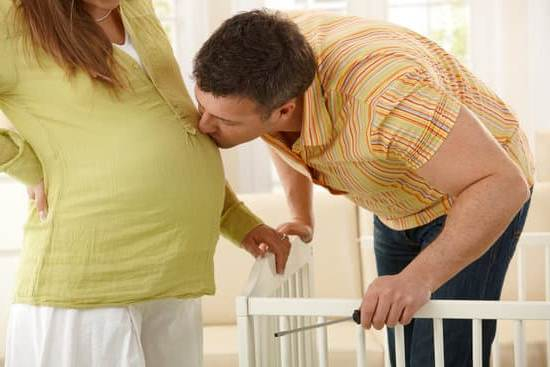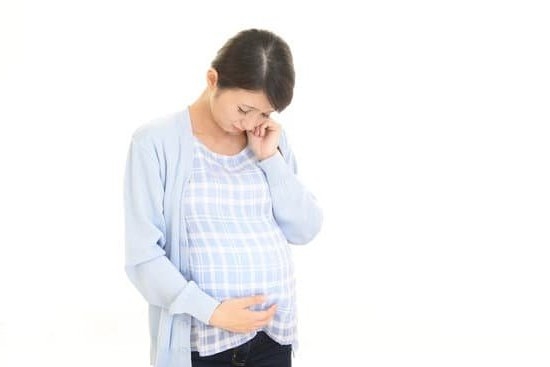Introduction
Night sweats can be an uncomfortable and frustrating occurrence for anyone to experience, but pregnancy can complicate the situation even further. Women who are pregnant often experience night sweats and may feel anxious about what causes them. In this article, we’ll take a deeper look at how pregnancy might cause night sweats, possible underlying medical conditions, and potential treatments for these uncomfortable episodes.
Pregnancy is a time of significant physical change in a woman’s body; fluctuating hormone levels during this period can lead to many bodily changes, including increased perspiration. This means that women who are expecting may find themselves waking up throughout the night soaked in sweat due to an elevated internal temperature. Changing temperatures in the environment can also contribute to this phenomenon, as can sleeping too close to other warm-bodied people or furniture.
While most of the time night sweats caused by pregnancy will be infrequent and relatively mild in nature, if they persist or become severe it could be indicative of another health concern. For example, women with hyperthyroidism or polycystic ovarian syndrome may find their chances of nighttime sweating increase during pregnancy due to hormonal changes taking place within the body. Additionally, if excessive sweating occurs alongside other symptoms such as fever, chills, headaches or unexplained weight loss it is important to see a doctor as soon as possible for assessment and diagnosis.
The good news is that there are several ways to potentially manage night sweats caused by pregnancy. Adjusting sleeping habits by wearing breathable fabrics close to the skin and keeping the bedroom cool can help regulate body temperature more easily while sleeping. Staying hydrated throughout the day with enough fluids and avoiding caffeinated beverages before bedtime is also essential. Additionally supplementing with essential oils such as lavender oil or drinking herbal teas made from chamomile or mint before bed can also help reduce perspiration when restless nights occur during pregnancy.
Causes of Night Sweats During Pregnancy
Night sweats during pregnancy may be caused by a number of factors. One possible explanation is an increase in body temperature due to the hormonal changes that occur during pregnancy. As your metabolism increases and your body works to support both you and your growing baby, it releases more heat, which can cause night sweats even if it’s only slightly elevated. Other causes for night sweats could be external factors such as wearing too many layers of clothing to bed or sleeping in a room that is too warm. Stress, anxiety, and eating spicy foods before bed can also result in night sweats. Finally, conditions like gestational diabetes or preeclampsia can cause night sweats due to the hormonal fluctuations they bring about.
Recognizing the Symptoms of Night Sweats During Pregnancy
Night sweats can be uncomfortable and sometimes even alarming for pregnant women. Many may wonder if the symptom could be related to their pregnancy. The short answer is yes, night sweats in pregnant women are indeed a potential side effect of the hormonal and physical changes that come along with it.
If you’re experiencing night sweats, then there are several signs that could help differentiate it from a typical sleeping nuisance. One of the more obvious symptoms of night sweats during pregnancy is that they often occur without warning—pregnant women may wake up suddenly drenched in sweat without any prior indication that anything was awry. This type of sweating also tends to take place during, rather than after sleep; most people have experienced being sweaty immediately after rising from bed but this sensation can occur during rest when pregnant. Additionally, other typical triggers for sweating, like blankets or room temperature, do not necessarily cause night sweats in these cases. If all of these signs point toward pregnancy-induced night sweats, then consulting with your doctor would offer peace of mind and an explanation as to why this occurs (and potentially how to abate it).
Treatment Options for Night Sweats During Pregnancy
Pregnancy can cause night sweats, especially during the first and third trimester. Night sweats that occur as a result of pregnancy are caused by hormonal fluctuations, which are common over the course of a woman’s pregnancy. Luckily, there is treatment available for those who suffer from night sweats during pregnancy. Regular exercise has been known to reduce symptoms in many cases, as well as decreasing the sugar intake and reducing the amount of caffeine in one’s diet. Additionally, wearing light clothes and keeping the bedroom cool before bed may also help to reduce the occurrence of night sweats during pregnancy. There are also herbal options such as chamomile tea or valerian root that some women have found to be effective remedies for their night sweating troubles. For severe cases, or if any other additional medical conditions seem to be causing the sweating at night, it is recommended that one consults with a medical professional to find out what treatments they can safely pursue while pregnant.
Strategies for Managing Night Sweats During Pregnancy
Yes, pregnancy can cause night sweats. Night sweats during pregnancy can be due to the body going through hormonal changes or an increase in core body temperature. This is normal and usually nothing to worry about if it is not accompanied by fever or any other symptoms.
If you experience night sweats during pregnancy, there are some strategies you can use to manage them:
1. Wear lightweight, breathable clothing or cotton nightwear that allows air circulation. This will help keep your body cool as it tries to regulate its temperature while sleeping.
2. Set your thermostat at a comfortable level and keep bedrooms well-ventilated with fans and windows open throughout the day and evening.
3. Place water-filled ice packs under your bed sheets for a cooling effect before going to sleep.
4. Engage in light exercise during the day like walking, swimming or yoga which might help you sleep more soundly at night with fewer night sweats.
5. Consume cooler drinks throughout the day instead of warm beverages which may help reduce nighttime sweating symptoms overall.
Tips for Avoiding Night Sweats During Pregnancy
Yes, pregnancy can cause night sweats. Typically, night sweats are caused by hormonal changes happening during pregnancy. For many women, these hot flashes and sweating occur during their first trimester of pregnancy. While night sweats are usually harmless, they can be uncomfortable for anyone experiencing them.
Here are a few tips to reduce the occurrence of night sweats during pregnancy:
1. Keep your bedroom temperature cool — it’s best to keep your room between 68-72 degrees Fahrenheit while you sleep.
2. Wear light and breathable clothing — as much as possible, avoid wearing heavy clothing that traps heat near your body. Long-sleeved nightshirts made out of natural fibers like cotton or linen can help keep you cool during the evening hours.
3. Hydrate throughout the day — especially leading up to bedtime, drink plenty of water and other beverages such as coconut water or herbal teas with low amounts of caffeine (less than 200 mg per day) to help regulate body temperature during the night.
4. Avoid spicy foods — many pregnant women find that limiting spicy food in their diets helps reduce hot flashes and night sweats associated with pregnancy.
5. Stay active and exercise regularly – this is important for not only overall physical health but also for decreasing feelings of overheating or “hot flashes” due to hormonal changes associated with pregnancy which may contribute to night sweats episodes..
Summary of Night Sweats During Pregnancy
Yes, night sweats can occur during pregnancy, especially during the first and third trimesters. Night sweats are the result of hormonal changes and usually caused by increased body temperature due to increased metabolism. In addition to hot flashes, these episodes may be accompanied by other unpleasant symptoms such as headaches, nausea, weakness, dizziness, and shortness of breath. Temperatures can range from mildly warm to uncomfortably hot but usually return to normal soon afterwards. Other causes of night sweats in pregnant women include anxiety, hormones released during labor preparation, dehydration, and fever due to an underlying infection. As such it is important for pregnant women experiencing night sweats to talk with their health care provider about possible causes and treatment options. Treatment may include lifestyle modifications or medications depending on the cause of the night sweats.

Welcome to my fertility blog. This is a space where I will be sharing my experiences as I navigate through the world of fertility treatments, as well as provide information and resources about fertility and pregnancy.





